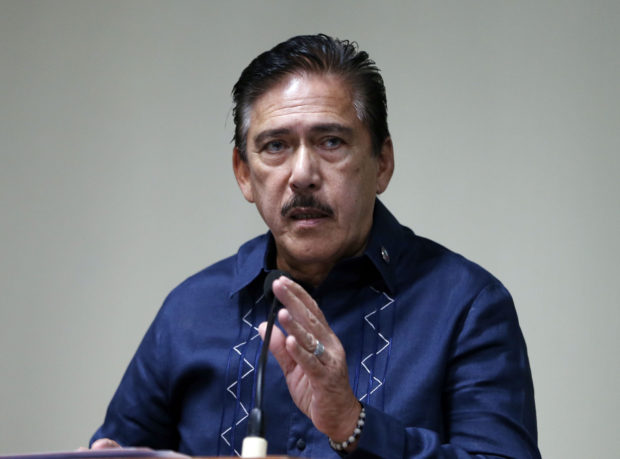With two survey firms releasing completely different results within days of each other, which should the public believe? It depends on who you ask.
Senate President Vicente Sotto III questioned on Friday the methodology of Social Weather Stations (SWS) and suggested that Pulse Asia’s figures were more reliable, after the two firms separately released seemingly conflicting survey results on President Duterte’s popularity.
On July 10, SWS released survey results that showed President Rodrigo Duterte’s net satisfaction rating dipping by 11 points to a record low, with 65 percent of Filipinos satisfied with his performance, 20 percent dissatisfied and 15 undecided.
SWS said Mr. Duterte’s net satisfaction rating stood at 45 percent, 11 points lower than his 56 percent net satisfaction rating in March.
On Friday, however, Pulse Asia said the President’s approval and trust ratings climbed by eight and five points, respectively, with 88 percent approving his performance and 87 percent giving him their trust.
Sotto said the problem was in the way that SWS had historically calculated the net satisfaction of Philippine leaders by subtracting the percentage of the dissatisfied from that of the satisfied.
“Why is it right minus wrong? [That’s] not right.
In elections, would you subtract the number of those who voted from those who did not?” Sotto asked.
Davao represents Mindanao?
Opposition Sen. Antonio Trillanes IV said Pulse Asia’s sampling design was “in error,” as it had surveyed mostly respondents from the President’s hometown of Davao City to represent the entire Mindanao.
This was despite the fact that respondents from other regions “are clearly not as fanatical to, or fearful of, Duterte as the Davaoeños are,” Trillanes noted.
Sen. Panfilo Lacson had a simpler explanation: The Pulse Asia survey was taken before President Duterte’s comment about a “stupid God,” while the SWS survey was taken after his controversial remarks.
‘A good case study’
Lacson cited the dates when the surveys were conducted, with the SWS survey done from June 27-30, days after Mr. Duterte’s mocking statements on June 22.
Pulse Asia did its survey from June 15 to 21, a day before the President made the comments that riled not just Catholics but members of other Christian denominations in the country.
Lacson added: “Be that as it may, it cannot be denied that (Duterte) is a good case study on how a country’s leader can maintain high trust and approval ratings in spite of the oft-repeated use of crass language.”
“Surveys are all about perception,” he added.
